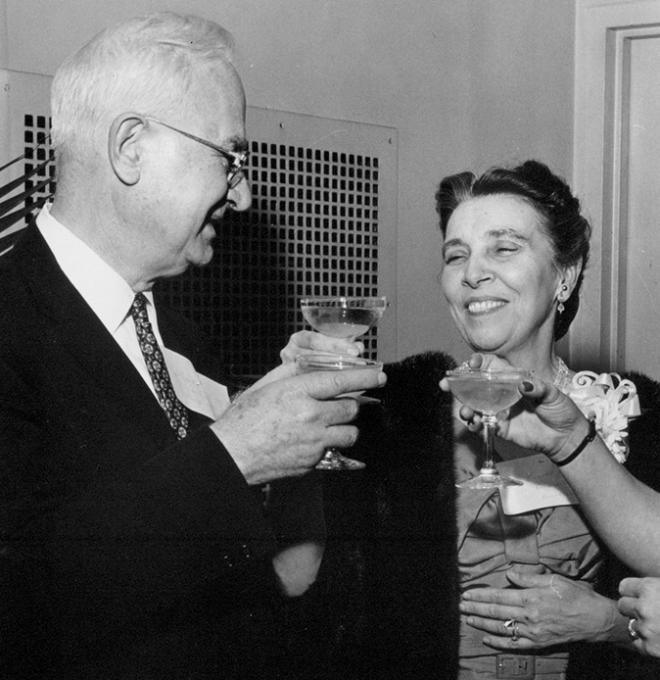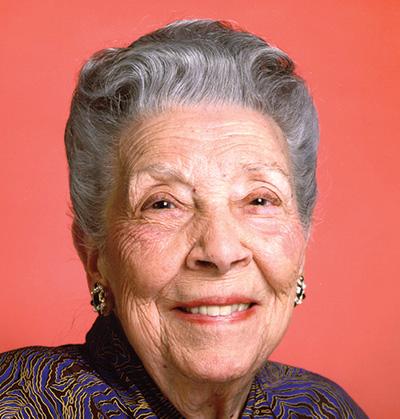
WETA went on the air on October 2, 1961 after an eight-year effort to bring public television to Greater Washington by a group of visionaries and public television pioneers led by Arlington luminary Elizabeth P. Campbell — WETA's first president and longtime leader — and Washington publisher Willard Kiplinger, Chairman of the WETA Board of Trustees.
Visionary Kiplinger Lays the Foundation
In 1952, the Federal Communications Commission (FCC) reserved television channels for noncommercial educational use, and UHF Channel 26 was set aside for the District of Columbia. The next year, the Greater Washington Educational Television Association, GWETA, organized and led by prominent Washington publisher Willard Kiplinger, was incorporated in the District of Columbia for the purpose of activating Channel 26 "to furnish a non-profit and noncommercial educational television broadcast service to the Greater Washington Area." Kiplinger raised vital funds in the community to support the nascent group and to develop the fledgling station, WETA, which would grow out of GWETA. He was among the original public trustees of the station, serving as Chairman of the WETA Board of Trustees, and he developed the membership program through which individuals could support WETA. Kiplinger was honorary Chairman at the time of his death in 1967.
Elizabeth Campbell Joins the Team
In 1956, to head GWETA, Kiplinger recruited Elizabeth Campbell, who had already made education her life's work, serving as dean at Mary Baldwin College and working to desegregate the public schools in Arlington County. Elected GWETA president in 1957, Campbell would go on to guide WETA for more than 40 years, leading the organization from a fledgling local station to a multi-media company of national renown. Campbell continued to serve the institution until her death in 2004 at the age of 101. Well into her 90s, Elizabeth Campbell continued to come to work every day (and from the start never accepted a paycheck) as WETA's Vice President of Community Affairs. She remains an inspiration at WETA.
Even before she helped to found WETA, Elizabeth Campbell had made her mark as a leader. Instilled with deep faith and a passion to teach, she championed free, quality education and was active in the community all her life.
Her goal, and that of her colleagues at GWETA and then WETA, was to do more than build a TV and radio station — it was to create an educational institution dedicated to enriching the lives of the people of Greater Washington.

